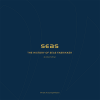Substance and Individuation in Leibniz
This book offers a sustained re-evaluation of the most central and perplexing themes of Leibniz’s metaphysics. In contrast to traditional assessments that view the metaphysics in terms of its place among post-Cartesian theories of the world, Jan Cover and John O’Leary-Hawthorne examine the question of how the scholastic themes which were Leibniz’s inheritance figure - and are refigured - in his mature account of substance and individuation. From this emerges a sometimes surprising assessment of Leibniz’s views on modality, the Identity of Indiscernibles, form as an internal law, and the complete-concept doctrine. As a rigorous philosophical treatment of a still-influential mediary between scholastic and modern metaphysics, this study will be of interest to historians of philosophy and contemporary metaphysicians alike.
• Uses contemporary metaphysics to examine a historical subject • Historically sensitive • An extremely rigorous and focused treatment
ContentsAcknowledgements; Introduction; 1. Leibniz and the problem of individuation: the historical and philosophical context; 2. Relations; 3. Essentialism; 4. Haecceitism and anti-haecceitism; 5. Sufficient reason and the identity of Indiscernibles; 6. Law-of-the-series, identity and change; 7. The threat of one substance; Bibliography; Index.
- Forlag: Cambridge University Press
- Utgivelsesår: 1999
- Kategori: Filosofi
- Lagerstatus: Ikke på lagerVarsle meg når denne kommer på lager
- Antall sider: 318
- ISBN: 9780521593946
- Innbinding: Innbundet












